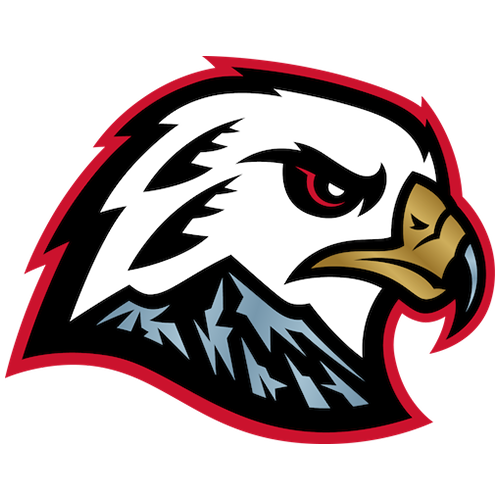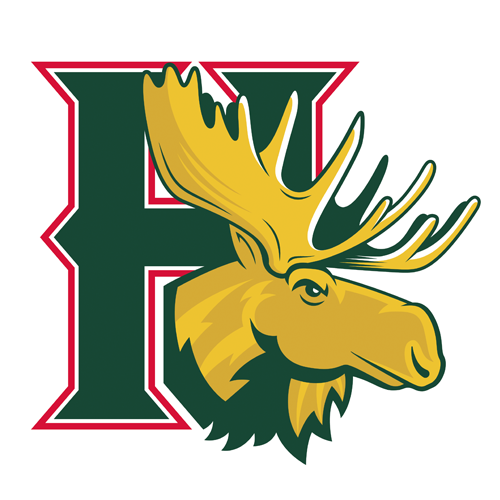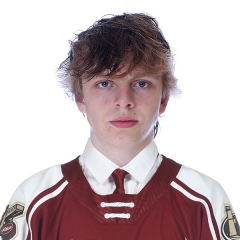Peterborough’s Rose Powers continues the mission to make hockey more inclusive
When Rose Powers was growing up in Peterborough, she idolized Eric Lindros, an NHL power forward and Hockey Hall of Fame inductee. Of course, Lindros played for the rival Oshawa Generals in his junior hockey days, making him a controversial favourite player for a Lift Lock City native. Still, Powers, who modelled her game after the Gens’ legend, wore #88 in recognition of her fandom.
“That’s who I modelled [my] game off of,” Powers said. “I just loved his style of play.”
Powers always wanted to play in the NHL, regardless of how slim the odds were. Though she never ended up playing the game at the highest level, she’s impacted hundreds of young athletes in a way that transcends sport. Having come out to her parents at the age of 16, LGBTQ+ representation in hockey is extremely important to her as both a lover of the game and a lesbian woman.
In 2018, Powers launched Sport a Rainbow, an initiative devoted to promoting inclusivity and acceptance for all athletes regardless of gender or sexuality. The initiative encourages athletes and team staff to take their pledge to stand up against hate in any form. The pledge concludes with a sentiment very close to Powers’ heart: “It’s about more than just a game.”
“It’s about the development of good people, accepting people, and inclusive people” Powers related.
Having been inducted into the Peterborough and District Sports Hall of Fame & Museum in 2020, Powers has long been a prolific figure in the city’s sports scene; she began as a player in the Peterborough Girls Hockey Association in 1979 and eventually rose to being the president of the association from 2004 to 2013. She also played slo-pitch and lacrosse at various points in her life.
“We wanted something that was tangible,” Powers remembered of the origin of the initiative, alluding to the complementary sticker that members put on their helmets to show their support.
Going even further, she says that Sport a Rainbow isn’t just for the LGBTQ+ community; it also serves to represent individuals of all races, ethnicities, and social statuses. It may be easily associated with the LGBTQ+ community given its rainbow aesthetic, but it represents more than just that, says Powers.
“I didn’t want Sport a Rainbow to just be about sexual orientation,” Power remarked.
This past season, the PGHA Ice Kats, Major Series Lacrosse’s (MSL) Peterborough Lakers, and the athletic teams of Sir Sandford Fleming College all rocked the locally curated rainbow stickers on their helmets in solidarity with the LGBTQ+ community. All in all, Powers estimates that about 5,000 people have taken the pledge. It is Powers’ hope that more teams will join in taking the pledge to stand up against homophobia and transphobia in sports, joining the likes of prominent athletes and celebrities Ron MacLean, Anthony Stewart, Angela James and Caroline Ouellette.
“Visibility is so important,” Powers insisted emphatically. “We need to see people of colour on TV, for example. We need to see women being successful. If it makes it easier for one kid out there who’s struggling, then it’s worth it for me.”

Rose Powers joins other local and international hockey legends at the 2022 PWHPA Regional Game hosted by the Peterborough Petes.
Though much more work is to be done, LGBTQ+ individuals have become steadily more prominent in sports. In July 2021, Nashville Predators prospect and Calgary Hitmen defenceman Luke Prokop became the first openly gay player under NHL contract, but the work is nowhere near done for inclusivity in hockey.
“I would say that hockey has the furthest to go,” Powers, who insisted that hockey is her passion, explained. “Again, it’s just changing the culture of the sport to make it inclusive for everyone. In my opinion, if football players can be accepting and supportive, then what is wrong with the hockey culture?”
For Powers, active and supportive allyship is crucial to eradicating homophobia in hockey; being seen and being heard as an ally can go a long way in creating an inclusive and accepting environment, Powers noted. Also, using gender-neutral language in everyday situations is a small but impactful thing everyone can do to make LGBTQ+ individuals feel more comfortable.
“Wear your pride out there,” Powers advised. “Be heard and be seen and show people that you’re an ally.”
“If you see something or hear something that doesn’t sit right with you, speak out about it. That’s how you become an ally.”
As Pride Month comes to a close, Powers’ story remains a strong reminder that we all have a role to play in making hockey a safer, more welcoming, enjoyable sport for everyone.










































































